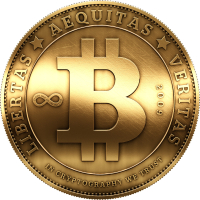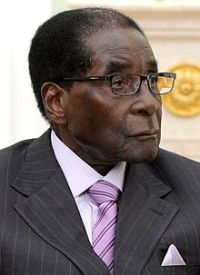
I was skeptical, but now I understand. I hope when you finish reading this that you will as well.
Blockchain is, at heart, an encryption algorithm. A successful encryption and decryption leaves a digital “token” you and your trading partner agree to put a value on. This is “crypto currency.” Blockchain advocates prefer the term “trust units.”
The best-known implementation of blockchain is Bitcoin. Bitcoin is a marketplace for tokens that are created through decryption. There are only 21 million available answers to the Bitcoin puzzle, thus the “money supply” of Bitcoin is fixed.

A Bitcoin marketplace is outside the reach of central banks. They can’t issue new Bitcoin. It’s out of the reach of central governments. They can’t devalue Bitcoin by printing it in the form of debt. Thus, in theory, Bitcoin becomes a currency that can only become more valuable over time, as more people use it. It is what gold was. Many gold bugs are now Bitcoin bugs.
Beyond Bitcoin itself, blockchain enables vast barter economies to be created. Drug cartels can create their own crypto-currencies, take payment through the conversion of dollars or Yen to that currency, then trade that store of value in the underground economy. They can come up for air by converting their crypto-currency into Bitcoin, anonymously, then using the Bitcoin to buy goods, services, or cash.
Because crypto-currency is entirely digital, and doesn’t go through the banking system, tons of fees are taken away. Transaction processing fees go away for the most part. Foreign exchange fees go away as well. If you have ever traveled outside your home country, you know that changing currencies costs you about 10% of your money, in each direction. With the pound at 1.10 Euro, Englishmen are shocked post-Brexit to learn they may be getting less than a Euro per pound. If Brits can buy Bitcoin, and get merchants to use it, that goes away.

Now, governments and banks are trying to get in on the action. This is controversial within the Bitcoin community whose hallmark is distrusting all forms of regulation. But remember, the technology is blockchain, Bitcoin is just an implementation. There are dozens of others. The value of these other crypto-currencies in relation to Bitcoin is, for now, a market process. There is no government involvement. If Bitcoin traders find the hand of any government too burdensome, they can get together and create another market, one with even-stronger encryption.
Right now, analysts are only expecting blockchain to become a mainstream technology in six years. But Donald Trump could dramatically accelerate adoption, with his efforts to spur inflation through deficit spending aimed at raising commodity prices. (Remember, he was elected by producers of commodities.)

What goes for blockchain, an encryption technology, can go for the Internet as well. Government can’t decrypt what can always be encrypted more securely. Strong encryption can get a message through any firewall, Great or small. It’s a technology arms race in which the technologists can always lead.
The Internet of money, in short, could be about to take off. There is uncertainty in blockchain, as in any new technology, but like the Internet of 20 years ago it is, for now, far beyond the power of governments to control.










we are looking for colaborator or investor for app agriculture app or you may download it
we are looking for colaborator or investor for app agriculture app or you may download it